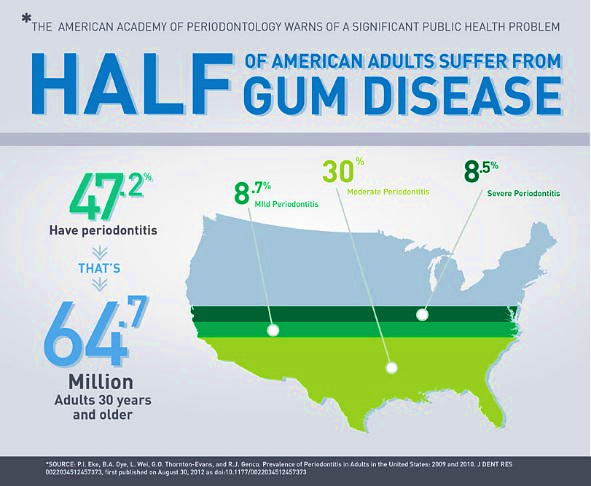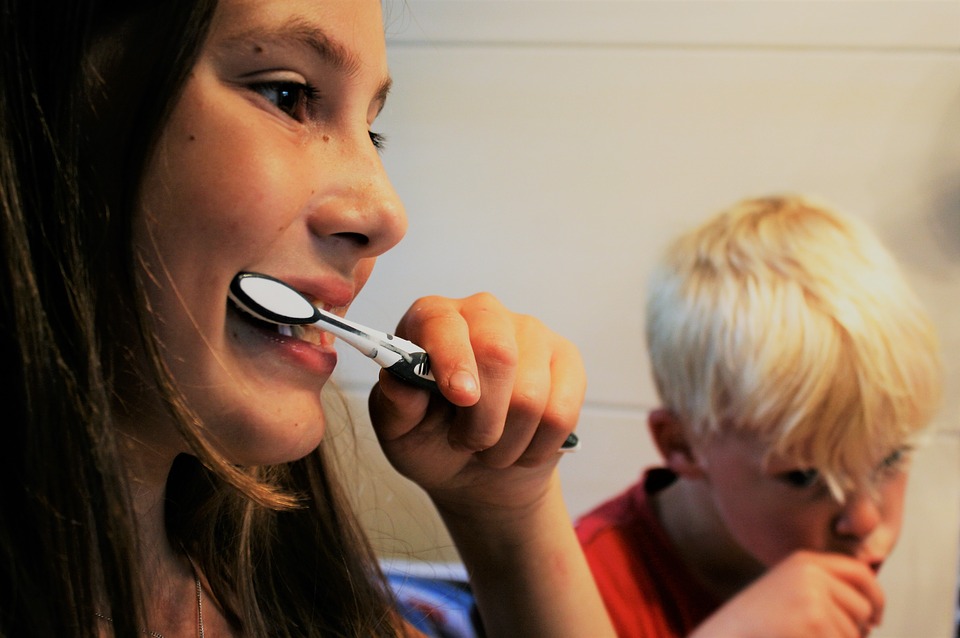This post was written by guest blogger Elizabeth Gordon of MODA Health.
It is never too late to adopt healthy habits and preventive changes, especially when it comes to your mouth! Now is the perfect time to check how your healthy habits stack up. The list below is a great start to having good oral health –
- Keep mouth clean by brushing and cleaning between teeth daily
- Annual check-ups with both your doctor and dentist
- Eat healthy foods
Oral Health is Part of Overall Health
Did you know that the health of your mouth contributes to over 90% of diseases such as diabetes, heart disease and cancer? This is why having good oral health can improve your overall health.
Also, half of all American adults over the age of 30 have some form of periodontal (gum) disease. This may cause the gums to bleed, which is not normal. Gums that bleed are an indication of inflammation and could be a sign of other serious diseases.
Diabetes and heart disease are correlated with poor oral health. A correlation means that data shows a connection, but does not prove that one thing causes the other directly.
Diabetes – People with diabetes are more likely to have gum disease (swollen, red, infected gums) and tooth loss. Researchers think this occurs because diabetes reduces the body’s overall resistance to infection.
Heart disease – People with moderate to advanced gum disease are more likely to have cardiovascular disease, including heart disease and stroke, than someone with healthy gums. Studies have not shown that one condition causes the other, however, the two conditions share many risk factors including smoking, poor diet and diabetes.

Graphic from a CDC study featured on Perio.org
What if I Haven’t Been Keeping Up on my Oral Health?
As it turns out, there is a biological reason you may not have cared about brushing, flossing, eating well and going to dental cleanings. The human brain does not reach maturity until well into our twenties. The prefrontal cortex of the brain is where decision-making occurs. It contributes to the ability to plan, the capacity to control impulses, understand consequences and solve problems. (1) The problem is that until the brain matures around age 25-30, it utilizes another connection called the amygdala that is associated with processing emotions, impulses, aggression and instinct. (2) This immature brain is why younger people do not always take care of their health or plan for unseen emergencies.

Brain diagram. Credit: dwp.gov.uk
As people mature, they start to look at their futures and begin to repair any damage done during those younger “adulting” days. The good news is that the human body has amazing healing capacities. If one were to quit smoking, the body will begin to become healthier, thus lowering the risks for developing other diseases such as cancer. No matter what stage of life you are in, practicing good oral hygiene will improve your overall health.
Begin with Some Easy Changes
Healthy habits take time to develop, but each small change you make will improve your oral and overall health. Which of the habits below are you already doing, and what is one you could try to develop?
- Be more aware of sugar intake. Cut down your added sugar intake for your overall health and the health of your mouth and teeth. (Added sugars are non-natural sugars such as white or brown sugar, sucrose or high fructose corn syrup.) The American Heart Association (AHA) states the maximum amount of added sugars you should eat in a day are 150 calories per day (9 ¼ teaspoons) for men and 100 calories per day (6 ¼ teaspoons) for women.(3)
- Try mindful eating. When we are not mindful about our eating, we can easily make a big dent in a bag of chips or a pint of ice cream. Consciously enjoying our food – the taste, smell, texture and colors – can help us slow our eating, which means we are better able to assess when we are feeling full. Preparing a snack mindfully could mean putting almonds in a bowl rather than taking out the whole bag or rationing chips into five small bags for lunches. Using small plates and bowls to serve ourselves can also help us to be mindful of portion sizes.
- Try food journaling. A food journal helps us to understand and be mindful of what and how much we are eating. Dedicate three to five days writing down EVERYTHING that goes into your mouth, including water. Note if or when you are tempted to eat without thinking much about it. What healthy snacks can you keep on hand at work?
- Drink water instead of sugary beverages. Also, swish your mouth with water after eating.
- Floss at least once per day. You can use regular floss or the floss picks. Keep some at home, at work and other places so you always have them on hand.
- Brush with a soft mechanical or manual toothbrush and fluoride toothpaste. Brushing twice a day is best practice.
- Use an antibacterial mouth rinse with fluoride but not alcohol.
- Use Xylitol products, such as gum with Xylitol. 5-10 servings in a 24-hour period reduces bacterial load in your mouth.
- Go see your dentist once a year to get your teeth cleaned and your oral health checked.
With a little planning and dedication to your oral health, you can boost your overall health and maintain healthy teeth and gums. Remember, every healthy change you make will have a positive impact!

References:
- Anderson VA, Anderson P, Northam E, et al. Development of executive functions through late childhood and adolescence in an Australian sample. Dev Neuropsychol. 2001;20:385–406. [2001 PubMed]
- Cunningham MG, Bhattacharyya S, Benes FM. Amygdalo-cortical sprouting continues into early adulthood: Implications for the development of normal and abnormal function during adolescence. J Compar Neurol. 2002;453:116–30. [2002 PubMed]
- Johnson RK, Appel LJ, Brands M, Howard BV, Lefevre M, Lustig RH, Sacks F, Steffen LM, Wylie-Rosett J; American Heart Association Nutrition Committee of the Council on Nutrition, Physical Activity, and Metabolism and the Council on Epidemiology and Prevention Dietary sugars intake and cardiovascular health: a scientific statement from the American Heart Association. Accessed 4/11/2018.

